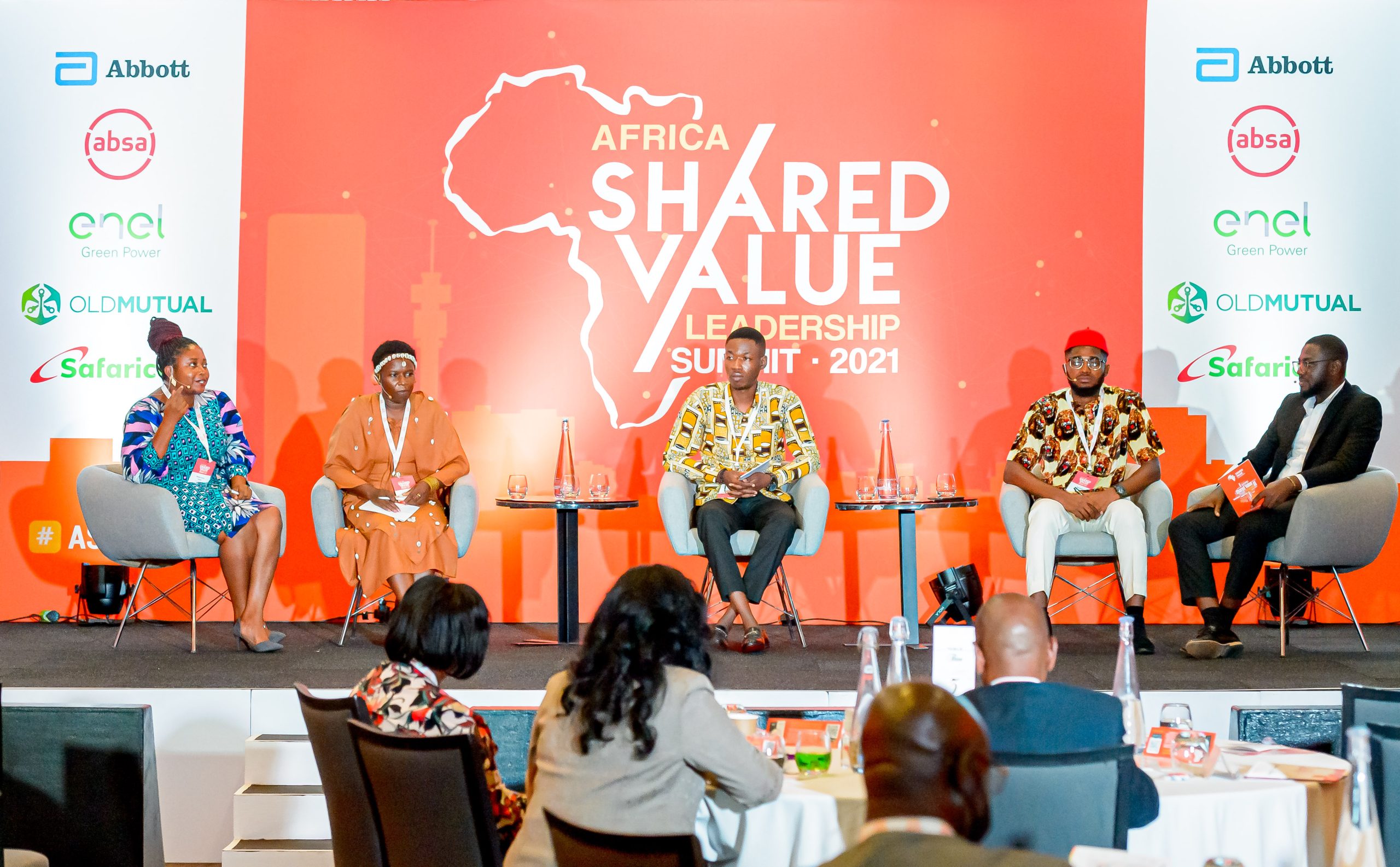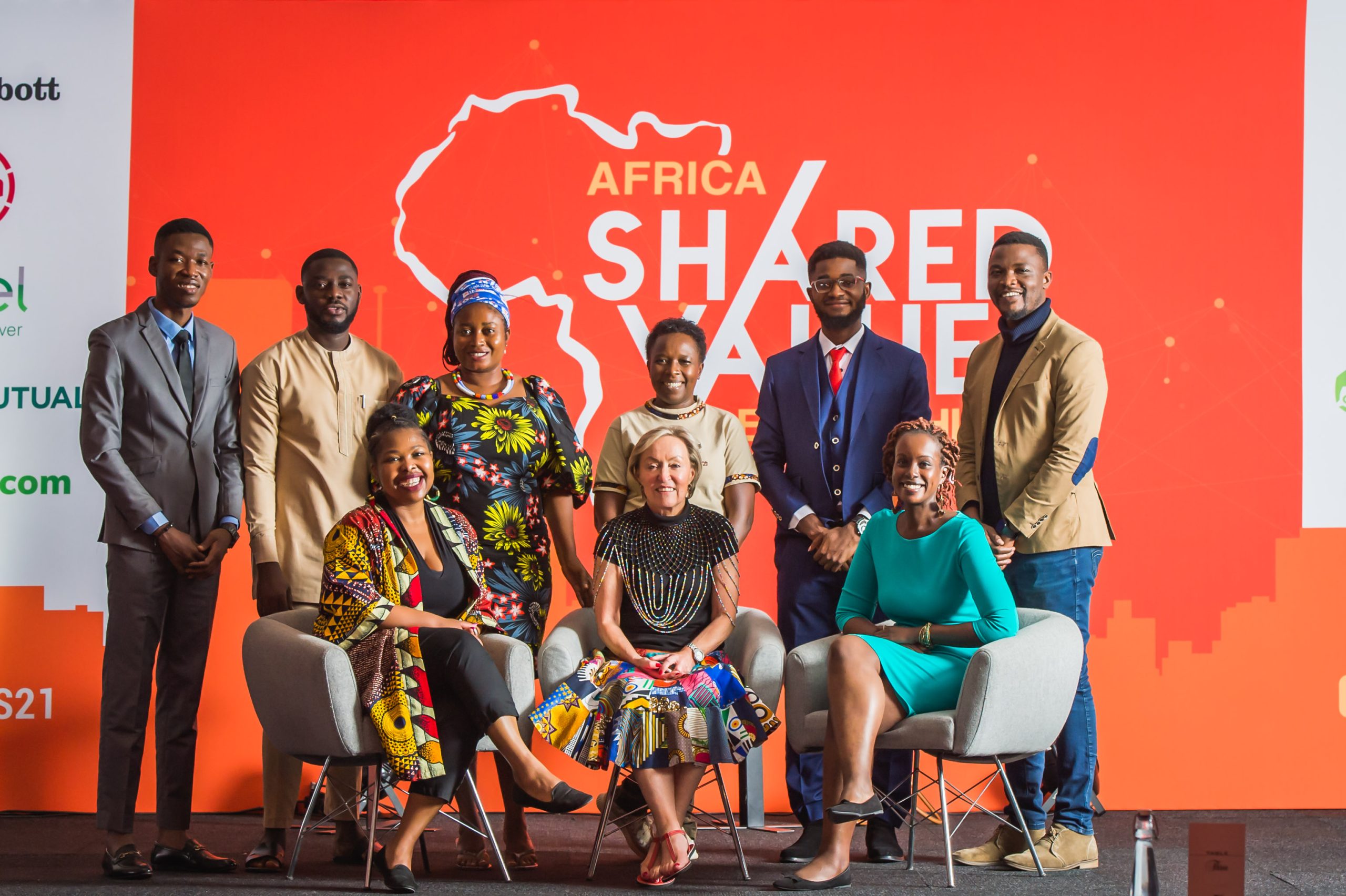Entrepreneurial Learnings & Reflections
Overcome barriers and maximising opportunities
By Andrews Akoto-Addo
I was avidly looking forward to the 5th annual Africa Shared Value Leadership Summit (ASVLS) on the 8th – 9th of November 2021 at the Maslow Hotel in Sandton, South Africa and I fittingly experienced it to its fullness; learning from and connecting with admired leaders of industries, affluent business executives and budding entrepreneurs, investors and SDG advocates.

This year’s theme: One Africa One Voice – is truly a reflection of the Summit. All sessions communicated the essence of the theme in light of Africa’s Economic Growth & the Africa Continental Free Trade Area (AfCFTA), Entrepreneurship, Gender Equality & Inclusion, the Sustainable Development Goals (SDGs) and #BuildingBackBetter.
Considering my work with the Ghana Tech Lab to help bridge the access to finance gap of startups developed and deployed from the Tech Lab’s incubator and accelerator programs, the #ASVLS21 presented an incredible opportunity to engage various actors of the entrepreneurship and innovation ecosystem in Africa, to learn of their work, and to celebrate the remarkable strives of young entrepreneurs and innovators on the continent.
In that regard, it was an honour to facilitate a session during one of the panel discussions that focused on African Entrepreneurs themed: Overcoming Barriers as an Agile African Entrepreneur. On the panel was Bless Ama Satsi – Co-founder & CEO of Kuanijom, Edmund Amu – Co-CEO & Head of Clinic Department at Kenoch HG Herbal, Francescah Munyi – Founder & CEO of KOFAR Kenya Limited and Benedict Chibuikem Okpala – Co-founder & Chief Innovation Officer of Kiru Energy.
Below are key learnings and reflections of the Summit and from the panel discussion:
First, Governments must build systems and develop policies that encourage entrepreneurship. Existing research suggests that small businesses create about half of new jobs in Africa, but some research suggests that they also have high failure rates… The European Union asserted during one of its gatherings in 2012 that, for developing countries, the expansion of the private sector, notably Micro, Small and Medium-sized Enterprises (MSMEs) is a powerful engine of economic growth and the main source of job creation.
Not to undermine the efforts of my Government, but as a Ghanaian, it seems there’s very little my Government does to sustain MSMEs – more so Startups – to realize the needed benefits for employment and economic development. Reflecting on my conversations with the entrepreneurs on the panel and with some great minds at the #ASVLS21, I noticed that the challenge of Governments in Africa is their inability to develop policies that work or fosters the growth of the entrepreneurship ecosystem; so below are my recommendations which is basically from my observations and reading:
- Governments must prioritize entrepreneurial activities. The formulation of effective policies for entrepreneurial ecosystems requires the active involvement of Government Ministers working with senior public servants and successful entrepreneurs to act as ‘Institutional Entrepreneurs’ to shape and empower entrepreneurship-oriented policies and programs.
- Government policies has to be broadly focused. Entrepreneurship policy development should be holistic and must encompass all components of the ecosystem rather than seeking to ‘cherry pick’ areas of special ‘political’ interests. We can’t go that path if we want real impact and development.
- Allow for organic growth of the ecoystem not top-down solutions. Build from existing industries or enterprises that were formed and are maturing organically within the region or country rather than seeking to generate new industries from green field sites. As part of the Government’s commitment to climate action, these green fields can be kept as vegetative covers.
- The Government should provide leadership but delegate responsibility and ownership. Adopt a ‘top-down’ and ‘bottom-up’ approach transfering responsibility to local and regional authorities. The Government must operate as a facilitator and not a manager of the ecosystem.
- Commit efforts to the development of policies that addresses the needs of both the MSME and its Management team. Recognise that small business policy is ‘an exchange or interaction between people’ while entrepreneurship policy concerns the ‘way two or more people or things are connected’. Government must stop picking winners or over engineering the system. Helping MSMEs to succeed is more about removing obstacles to their growth such as anti-competitive cultures, unfair taxation, unnecessary “red tape” or lack of access to markets, skilled employees or investment capital.
- Second, PURPOSE is the most important attribute of an Entrepreneur. The need for meaning and impact is inherent in every entrepreneur; however, for such an entrepreneur to bring that meaning to life and make a difference in society, they must have a strong “WHY”behind what they do or intend to do.
- It is not about how skilled the entrepreneur is, though skill is important; it is not also about how connected the entrepreneur is, though it is important for entrepreneurs to build value-adding relationships; the real difference is the uncompromising “WHY”behind what an entrepreneur does. By reason of my practice and observations, I strongly believe there will be no force in life to stop an entrepreneur with a strong “WHY”, except the inevitable…
- Reflecting on my conversation with my panellists who are co-fellows of the first and second cohort of the Purpose Playbook Trainingunder the Shared Value Africa Academy, I have reached a conclusion regarding the journey of an entrepreneur – “the stronger the WHY of an entrepreneur, the better his/her chances of success”.
The easy part of an entrepreneur’s life is to start a business, the hardest part is to sustain the business for growth and profitability. This is the reason why an entrepreneur needs an overwhelming drive, which comes from a deep sense of purpose.
From the panel, I noticed that the sense of purpose (i.e. the WHY) of an entrepreneur resonates from somewhat of a pain in their life that they want to overcome or from a noble desire to serve others by rendering their innovative product or service. Indeed, this is nothing different from the life of the successful entrepreneurs we admire. The WHY can come from something supposedly negative (a pain) or something outrightly positive (a desire to serve).
Moreso, as a result of their sense of purpose, these entrepreneurs are driven to create something bigger than themselves. Intrinsically, there is an incredible balance regarding the economic advancement of these entrepreneurs and the need to address the needs of their community. Herein lies the umbrella philosophy of Creating Shared Value.
In recent times, business leaders have come to understand that purpose and profit are delicately interwoven. And as Africa and the World’s active population is being led by the Millennials and Generation Zs (i.e. people born between 1983 and 2003), businesses cannot think about profit without purpose. The case for having both has become far more compelling than ever. Business is truly about creating economic value and value for society; hence, Profit with Purpose.
In conclusion, considering the need to #BuildBackBetter my desire is for the Government, private sector and society to make a success of the AfCFTA, as well as work together towards Africa’s economic recovery by developing new structures conducive to the development of entrepreneurship and innovation among young people.

Benedict Okpala, Co-Founder, Kiru Energy
The event was timely and very strategic with a great theme of togetherness and partnerships between big companies and SMEs as well as with government bodies. KOFAR’s purpose is to reduce hunger as well as take care of our environment. With Shared Value, all stakeholders understand their role and gain well.
Francescha Munyi, Founder, KOFAR Kenya Ltd
It was mind blowing the people I could only dream of meeting and connecting with, now in the same physical environment with me and I had the chance of networking with them. The whole experience felt like a family meeting, where I could confide in just anybody about questions bothering my career and personal growth.
Bless Ama Satsi, Co-Founder & CFO, BitMartAgro (formerly Kuanijom)




